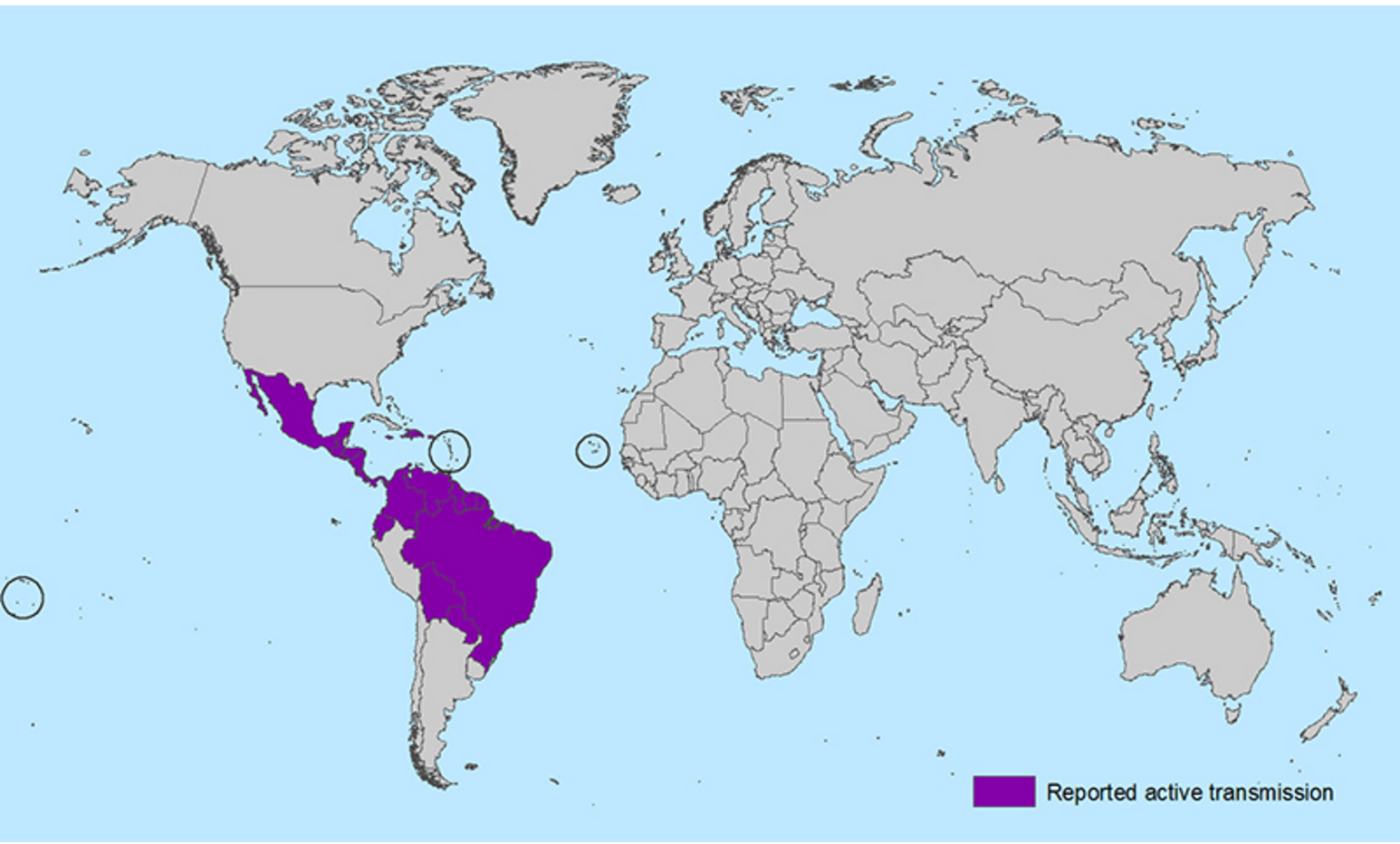Jacqui White, Staff Writer
The Zika Virus was discovered in 1947, yet it has never gotten much attention until now.
A rhesus monkey was running a 39.7°C (about 103°F) temperature. This temperature was about 2°C (35.6°F) higher than what a normal rhesus would have had. The monkey, named 766, was part of a study for yellow fever. The monkey was living in a tree that was part of the Zika Forest in Uganda.
Eventually, the scientists managed to separate the other virus from the yellow fever virus that they were looking for. They named the other virus Zika. For nearly 70 years, Zika was not brought up on a daily basis like other diseases.
According to the CDC, one in five people who are infected with Zika will actually become ill. Symptoms of Zika include fever, rash, and joint pain. The symptoms of Zika are similar to dengue and chikungunya, both carried by the same mosquitos that also carry Zika. The incubation of Zika is not known, but it can be from a couple of days to a week, depending on the person.
According to The Conversation Online, there were very few cases of Zika reported before 2007. In 2007, there was an outbreak of the virus on Yap Island, part of Micronesia. About 75 percent of the population was infected. An outbreak occurred in the French Polynesia six years later, along with other outbreaks of dengue and chikungunya.
Before October 2015, scientists in Brazil were not sure if microcephaly and Zika were connected. Now they believe microcephaly is caused when a Zika virus-carrying mosquito bites a pregnant woman. The mother may have the symptoms of Zika, but not fully develop the disease.

Microcephaly is the condition when an infant is born with a head that is much smaller than the average infant’s head size. Microcephaly also causes the child to have brain damage, resulting from the smaller head. According to the New York Times, there are typically about three million babies born per year in Brazil and 150 of those babies are born with microcephaly. Now, Brazil says it is investigating nearly 4,000 cases.
With the growing concern of Zika virus reaching upstate New York and the Utica area, Julie Murawski, director of student health center at Utica College sent an email to the college community regarding the disease.
The email describes how anyone planning on traveling to South America, Central America, or the Caribbean should look at the health advisories for the area where they are staying. The email also suggests wearing long-sleeved shirts, pants, and socks to avoid being bitten by a mosquito carrying Zika or any other disease.
The American College Health Association recently released the following statement:
““In May 2015, the World Health Organization reported the first local transmission of Zika virus in the Western Hemisphere, with autochthonous (locally acquired) cases identified in Brazil. As of February 1, 2016, local transmission has been identified in at least 25 countries or territories in the Americas, including Puerto Rico. Also, as of February 2, 2016, one case of locally acquired and sexually transmitted Zika virus infection was confirmed in a patient in Texas. Possible cases of sexual transmission have been reported before, and the virus has occasionally been isolated in the seminal fluid of sick patients.”
Murawski also said that because Zika is a “mosquito-born” virus, there is always a concern it could spread just like other mosquito-born illnesses. Murawski added that at this time, the only known cases of the Zika virus have been “imported from outside the US”. She also added that the local Health Department will be monitoring the situation closely with the New York State Department of Health and the CDC.


















![President Todd Pfannestiel poses with Jeremy Thurston chairperson Board of Trustees [left] and former chairperson Robert Brvenik [right] after accepting the universitys institutional charter.](https://uticatangerine.com/wp-content/uploads/2023/10/unnamed.jpeg)








































































































